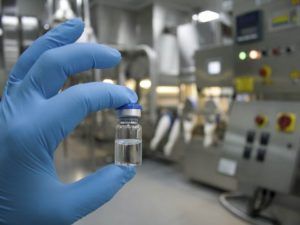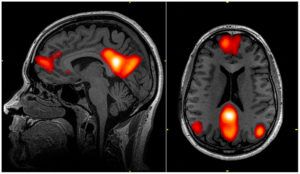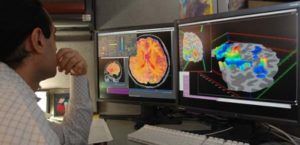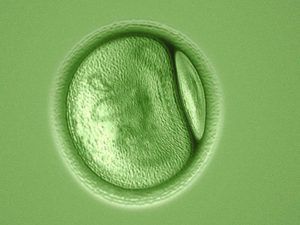
Tag: longevity







Revita Life Sciences Continues to Advance Multi-Modality Protocol in Attempt to Revive Brain Dead Subjects
Rudrapur, Uttrakhand, India — July 02, 2017
Revita Life Sciences, (http://revitalife.co.in) a biotechnology company focused on translational regenerative therapeutic applications, has announced that it is continuing to advance their novel, multi-modality clinical intervention in the state of brain death in humans.
“We have proactively continued to advance our multi-modality protocol, as an extended treatment before extubation, in an attempt to reverse the state of brain death” said Mr.Pranjal Agrawal, CEO Revita Life Sciences. “This treatment approach has yielded some very encouraging initial outcome signs, ranging from minor observations on blood pressure changes with response to painful stimuli, to eye opening and finger movements, with corresponding transient to permanent reversal changes in EEG patterns.”
This first exploratory study, entitled “Non-randomized, Open-labelled, Interventional, Single Group, and Proof of Concept Study with Multi-modality Approach in Cases of Brain Death Due to Traumatic Brain Injury Having Diffuse Axonal Injury” is ongoing at Anupam Hospital, Rudrapur, Uttrakhand. The intervention primarily involves intrathecal administration of minimal manipulated (processed at point of care) autologous stem cells derived from patient’s fat and bone marrow twice a week.

This study was inappropriately removed from the Indian Council of Medical Research (ICMR) database. ICMR has no regulatory oversight on such research in India.
The Central Drugs Standard Control Organization (CDSCO), Drug Controller General of India, had no objection to the program progressing. Regulatory approval as needed for new drugs, is currently not required when research is conducted on the recently deceased, although IRB and family consent is definitely required. CDSCO, the regulator of such studies, clearly states that “no regulatory requirements are needed for any study with minimal manipulated autologous stem cells in brain death subjects”.
Death is defined as the termination of all biological functions that sustain a living organism. Brain death, the complete and irreversible loss of brain function (including involuntary activity necessary to sustain life) as defined in the 1968 report of the Ad Hoc Committee of the Harvard Medical School, is the legal definition of human death in most countries around the world. Either directly through trauma, or indirectly through secondary disease indications, brain death is the final pathological state that over 60 million people globally transfer through each year.
“We are in process of publishing our initial retrospective results, as well ongoing early results, in a peer reviewed journal. These initial findings will prove invaluable to the future evolution of the program, as well as in progressing the development multi-modality regenerative therapeutics for the full range of the severe disorders of consciousness, including coma, PVS, the minimally conscious state, and a range of other degenerative CNS conditions in humans,” said Dr. Himanshu Bansal, Chief Scientific Officer, Revita Life Sciences and Director of Mother Cell.

With the maturation of the tools of medical science in the 21st century, especially cell therapies and regenerative medicines, tissues once considered irretrievable, may finally be able to be revived or rejuvenated. Hence many scientists believe that brain death, as presently defined, may one day be reversed. While the very long term goal is to find a solution for “re-infusing life”, the short term purpose of these types of studies is much less dramatic, which is to confirm if the current definition of brain irreversibility still holds true. There have been many anecdotal reports of brain death reversal across the world over the past decades in the scientific literature. Studies of this nature serve to verify and establish this very fact in a scientific and controlled manner. It will also one day give a fair chance to individuals, who are declared brain dead, especially after trauma.
About Revita Life Sciences
Revita Life Sciences is a biotechnology company focused on the development of stem cell therapies and regenerative medicine interventions that target areas of significant unmet medical need. Revita is led by Dr. Himanshu Bansal MD, who has spent over two decades developing novel MRI based classifications of spinal cord injuries as well as comprehensive treatment protocols with autologous tissues including bone marrow stem cells, Dural nerve grafts, nasal olfactory tissues, and omental transposition.

Bioquark Inc. and Lakmus LLC Announce Research Collaboration to Study Novel Biopharmaceuticals for Healthy Longevity Enhancement
Philadelphia, PA, USA / Moscow, Russia — Bioquark, Inc., (www.bioquark.com) a life sciences company focused on the development of novel bio-products for regeneration, disease reversion, and healthy aging, and Moscow based, Lakmus LLC, a diversified investment company with business interests in pharmacies, restaurants, and real estate, announced a multi-disciplinary research collaboration with the FSBI Zakusov Institute of Pharmacology, Russian Academy of Medical Sciences (http://www.academpharm.ru/), and the Pavlov Institute of Physiology of the Russian Academy of Sciences (http://www.infran.ru/), to jointly study the pharmacotherapeutic longevity enhancement properties of its combinatorial regenerative biologic candidates.
“We are very excited about this continued collaboration with Lakmus,” said Ira S. Pastor, CEO, Bioquark Inc. “The disciplined development of our combinatorial biologic candidates (Bioquantines) for healthy longevity enhancement, represents another important step in our continued evolution as a company focused on a broad range of therapeutic products and services in the regenerative healthcare space.”
Throughout the 20th century, natural products formed the basis for a majority of all pharmaceuticals, biologics, and consumer healthcare products used by patients around the globe, generating trillions of dollars of wealth. However, many scientists believe we have only touched the surface with what the natural world, and its range of organisms, which from a health and wellness perspective are much further advanced than human beings, has to teach us.
The integration of a complex set of newer research disciplines, including interkingdom signaling, semiochemical communication, and evolutionary biology, as well as significant recent activity in the areas of the microbiome, are highlighting a myriad of new ways that non-human bio-products can affect the human genome for positive transitions in health and wellness dynamics.
“Bioquark has spent several years studying the natural ability of many species to turn back biological time in order to maintain health, fitness, and survival, developing a broad understanding of the combinatorial biochemical approaches they use to control nested hierarchies of disease (i.e. gene, cell, tissue, organism, environment),” said Dr. Sergei Paylian, Founder, CSO, and President, Bioquark Inc. “This research initiative is one more step in the path in allowing humans to recapture these capabilities to effectively counter our unfortunate progression into aging, disease and degeneration.”
About Bioquark, Inc.
Bioquark Inc. is focused on the development of natural biologic based products, services, and technologies, with the goal of curing a wide range of diseases, as well as effecting complex regeneration. Bioquark is developing both biological pharmaceutical candidates, as well as products for the global consumer health and wellness market segments.
Value Conflicts surrounding the Meaning of Life in the Trans/Post/Human Future
Posthumanists and perhaps especially transhumanists tend to downplay the value conflicts that are likely to emerge in the wake of a rapidly changing technoscientific landscape. What follows are six questions and scenarios that are designed to focus thinking by drawing together several tendencies that are not normally related to each other but which nevertheless provide the basis for future value conflicts.
- Will ecological thinking eventuate in an instrumentalization of life? Generally speaking, biology – especially when a nervous system is involved — is more energy efficient when it comes to storing, accessing and processing information than even the best silicon-based computers. While we still don’t quite know why this is the case, we are nevertheless acquiring greater powers of ‘informing’ biological processes through strategic interventions, ranging from correcting ‘genetic errors’ to growing purpose-made organs, including neurons, from stem-cells. In that case, might we not ‘grow’ some organs to function in largely the same capacity as silicon-based computers – especially if it helps to reduce the overall burden that human activity places on the planet? (E.g. the brains in the vats in the film The Minority Report which engage in the precognition of crime.) In other words, this new ‘instrumentalization of life’ may be the most environmentally friendly way to prolong our own survival. But is this a good enough reason? Would these specially created organic thought-beings require legal protection or even rights? The environmental movement has been, generally speaking, against the multiplication of artificial life forms (e.g. the controversies surrounding genetically modified organisms), but in this scenario these life forms would potentially provide a means to achieve ecologically friendly goals.
- Will concerns for social justice force us to enhance animals? We are becoming more capable of recognizing and decoding animal thoughts and feelings, a fact which has helped to bolster those concerned with animal welfare, not to mention ‘animal rights’. At the same time, we are also developing prosthetic devices (of the sort already worn by Steven Hawking) which can enhance the powers of disabled humans so their thoughts and feelings are can be communicated to a wider audience and hence enable them to participate in society more effectively. Might we not wish to apply similar prosthetics to animals – and perhaps even ourselves — in order to facilitate the transaction of thoughts and feelings between humans and animals? This proposal might aim ultimately to secure some mutually agreeable ‘social contract’, whereby animals are incorporated more explicitly in the human life-world — not as merely wards but as something closer to citizens. (See, e.g., Donaldson and Kymlicka’s Zoopolis.) However, would this set of policy initiatives constitute a violation of the animals’ species integrity and simply be a more insidious form of human domination?
- Will human longevity stifle the prospects for social renewal? For the past 150 years, medicine has been preoccupied with the defeat of death, starting from reducing infant mortality to extending the human lifespan indefinitely. However, we also see that as people live longer, healthier lives, they also tend to have fewer children. This has already created a pensions crisis in welfare states, in which the diminishing ranks of the next generation work to sustain people who live long beyond the retirement age. How do we prevent this impending intergenerational conflict? Moreover, precisely because each successive generation enters the world without the burden of the previous generations’ memories, it is better disposed to strike in new directions. All told then, then, should death become discretionary in the future, with a positive revaluation of suicide and euthanasia? Moreover, should people be incentivized to have children as part of a societal innovation strategy?
- Will the end of death trivialize life? A set of trends taken together call into question the finality of death, which is significant because strong normative attitudes against murder and extinction are due largely to the putative irreversibility of these states. Indeed, some have argued that the sanctity – if not the very meaning — of human life itself is intimately related to the finality of death. However, there is a concerted effort to change all this – including cryonics, digital emulations of the brain, DNA-driven ‘de-extinction’ of past species, etc. Should these technologies be allowed to flourish, in effect, to ‘resurrect’ the deceased? As it happens, ‘rights of the dead’ are not recognized in human rights legislation and environmentalists generally oppose introducing new species to the ecology, which would seem to include not only brand new organisms but also those which once roamed the earth.
- Will political systems be capable of delivering on visions of future human income? There are two general visions of how humans will earn their keep in the future, especially in light of what is projected to be mass technologically induced unemployment, which will include many ordinary professional jobs. One would be to provide humans with a ‘universal basic income’ funded by some tax on the producers of labour redundancy in both the industrial and the professional classes. The other vision is that people would be provided regular ‘micropayments’ based on the information they routinely provide over the internet, which is becoming the universal interface for human expression. The first vision cuts against the general ‘lower tax’ and ‘anti-redistributive’ mindset of the post-Cold War era, whereas the latter vision cuts against perceived public preference for the maintenance of privacy in the face of government surveillance. In effect, both visions of future human income demand that the state reinvents its modern role as guarantor of, respectively, welfare and security – yet now against the backdrop of rapid technological change and laissez faire cultural tendencies.
- Will greater information access turn ‘poverty’ into a lifestyle prejudice? Mobile phone penetration is greater in some impoverished parts of Africa and Asia than in the United States and some other developed countries. While this has made the developed world more informationally available to the developing world, the impact of this technology on the latter’s living conditions has been decidedly mixed. Meanwhile as we come to a greater understanding of the physiology of impoverished people, we realize that their nervous systems are well adapted to conditions of extreme stress, as are their cultures more generally. (See e.g. Banerjee and Duflo’s Poor Economics.) In that case, there may come a point when the rationale for ‘development aid’ might disappear, and ‘poverty’ itself may be seen as a prejudicial term. Of course, the developing world may continue to require external assistance in dealing with wars and other (by their standards) extreme conditions, just as any other society might. But otherwise, we might decide in an anti-paternalistic spirit that they should be seen as sufficiently knowledgeable of their own interests to be able to lead what people in the developed world might generally regard as a suboptimal existence – one in which, say, the life expectancies between those in the developing and developed worlds remain significant and quite possibly increase over time.

Bioquark Inc. Announces Approval of Bioquantine Food Ingredients in Eurasian Customs Union
Philadelphia, PA, USA / Moscow, Russia — Bioquark, Inc., (http://www.bioquark.com) a life sciences company focused on the development of novel bio-products for regeneration, disease reversion, and healthy aging, announced the commercial approval of naturally derived Bioquantine food ingredients in the Eurasian Customs Union (formerly known as the Customs Union of Belarus, Kazakhstan, and Russia). Moscow based, Lakmus LLC, a diversified investment company with business interests in pharmacies, restaurants, and real estate, collaborated with Bioquark Inc. on the regulatory approvals.
“We are very excited about this successful regulatory approval,” said Ira S. Pastor, CEO, Bioquark Inc. “The commercialization of Bioquantine food ingredients, including functional foods, drinks, and dietary supplements, represents another important step in our continued evolution as a company focused on a broad range of products and services in the regenerative healthcare space.”
Throughout the 20th century, natural products formed the basis for a majority of all pharmaceuticals, biologics, and consumer healthcare products used by patients around the globe, generating trillions of dollars of wealth. However, many scientists believe we have only touched the surface with what the natural world, and its range of organisms, which from a health and wellness perspective are much further advanced than human beings, has to teach us.
The integration of a complex set of newer research disciplines, including interkingdom signaling, semiochemical communication, and evolutionary biology, as well as significant recent activity in the areas of the microbiome and virome, are highlighting a myriad of new ways that non-human bio-products can affect the human genome for positive transitions in health and wellness dynamics.
“Bioquark has spent several years studying the natural ability of many species to turn back biological time in order to maintain health, fitness, and survival,” said Dr. Sergei Paylian, Founder, CSO, and President, Bioquark Inc. “This Eurasian initiative is one more step in the path in allowing humans to recapture these capabilities to effectively counter our unfortunate progression into aging, disease and degeneration.”
About Bioquark, Inc.
Bioquark Inc. is focused on the development of natural biologic based products, services, and technologies, with the goal of curing a wide range of diseases, as well as effecting complex regeneration. Bioquark is developing both biological pharmaceutical candidates, as well as products for the global consumer health and wellness market segments.
Link to Press — http://www.prweb.com/releases/2017/01/prweb13955162.htm